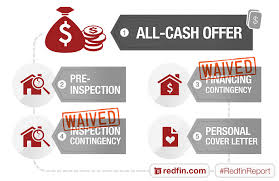Selling a New York Property While in Foreclosure
 Prior blog posts have discussed a “short sale” of a property in foreclosure. A short sale is when the house is worth less than the mortgage owed to the lending institution, and the lender agrees to accept less than the full amount owed when the transaction takes place. However, a situation may also arise when a house is worth more than the loan balance, or when the amount owed is small enough that the seller may decide to pay the difference in order to sell the property to a third party. This post will discuss legal issues related to these circumstances.
Prior blog posts have discussed a “short sale” of a property in foreclosure. A short sale is when the house is worth less than the mortgage owed to the lending institution, and the lender agrees to accept less than the full amount owed when the transaction takes place. However, a situation may also arise when a house is worth more than the loan balance, or when the amount owed is small enough that the seller may decide to pay the difference in order to sell the property to a third party. This post will discuss legal issues related to these circumstances.
Many of our firm’s intend to sell their houses or other property in foreclosure. They have listed their properties with a real estate agent, and are confident that the selling price will exceed the amounts owed on the property’s mortgage. In that case, the first legal recommendation is to have an attorney file an answer to the foreclosure complaint in the appropriate court, including all legal defenses . This will allow the homeowner additional time in which to find a buyer for the property while the foreclosure process plays out in Court. Mandatory settlement conferences for foreclosure actions may also further delay a lender’s obtaining of a judgment of foreclosure and sale, allowing more time to market and sell the property.
Once a buyer is procured, it is important that the seller’s attorney immediately prepare a Contract of Sale. Assuming all parties then execute the contract, the buyer’s downpayment should then be deposited in the attorney’s escrow account. The next step would be for the seller’s attorney to contact the attorneys handling the foreclosure for the lending institution. The attorney should provide copies of the fully signed contract, together with proof of the downpayment deposit. At this point, the attorneys for the lender may agree (although legally, they are not obligated) to put a “hold” on any foreclosure litigation, pending the closing of the sale of the property. The reason for this is that at the closing, the lender will be paid in full. Therefore, it is usually not cost effective for a lender to continue to pursue a judgment of foreclosure in Court once there is a signed contract and downpayment.
Who’s Heir to Prince’s Throne?
 In a prior post , we discussed the death of the musician Prince and speculated about matters pertaining to his estate. Since that time, the public has become aware of the tragic circumstances of his death and that he did indeed die without a Will.
In a prior post , we discussed the death of the musician Prince and speculated about matters pertaining to his estate. Since that time, the public has become aware of the tragic circumstances of his death and that he did indeed die without a Will.
In New York, person dying without a Will is deemed “intestate”. The proceeding held in Surrogate’s Court is then called an Administration Proceeding. In such a proceeding, those persons inherit depending upon their proximity in relationship to the deceased. For instance, if the deceased died without a spouse or children, then his parents would inherit from the deceased. With the estimated $300,000,000 estate at stake in the Prince case, random people may have an interest in claiming to be “related”.
Recent news reports have indicated that the Judge in the Prince case has limited those who claim to be Prince’s “relatives”. Even a person serving time in prison made such a claim. A DNA test was administered to the inmate to eliminate his claim in the estate. Others were not offered blood testing. While we can debate which persons should have been more thoroughly considered through DNA and blood testing, the mechanism shows that the Court will look at scientific evidence when necessary to determine whether a claimant is indeed related.
The Implementation of the New Mortgage Closing Disclosure Rules-How’s it Going?
 In a prior post , we alerted our readers that the HUD real estate closing form as they knew it would be disappearing from closings. In a later post , we informed our readers that the new loan closing disclosure rules were in effect. Several months after the implementation of these rules, we would like to share with you our observations of how clients have been dealing with these new rules.
In a prior post , we alerted our readers that the HUD real estate closing form as they knew it would be disappearing from closings. In a later post , we informed our readers that the new loan closing disclosure rules were in effect. Several months after the implementation of these rules, we would like to share with you our observations of how clients have been dealing with these new rules.
Fortunately, we have experienced a busy home transaction season. On the flip side, we have observed that transactions are closing approximately one month later than they did prior to the implementation of these new rules. The exception to later closings is when a transaction is all cash, which does not require these disclosure documents and the mandatory waiting periods involved. Longer closing timeframes are a result of lenders taking longer to issue the loan commitment, evaluate collateral, and clear the loan to close. Even if the buyer and seller are ready and anxious to close, the lenders have been disregarding the will of the parties because they can incur substantial fines for failure to provide timely disclosures under the new regulations. Lenders may also need to refund money to borrowers if the closing costs are higher than were disclosed. The mandatory disclosure timeframe can be shortened in rare circumstances, such as an actual emergency. An emergency is not that a buyer is going to have a baby imminently and wants to get settled, but is when a buyer may lose her downpayment by needing to react to a time of the essence closing notice or if the property is about to miss a short sale closing deadline .
Lenders have become much more inconsistent and conservative in recent months. We have found that most lenders are internally deciding to require disclosure timeframes that are longer than required by law. We have noted that one regional lender has required that even more time pass than required than a major national lender that is complying with the law. A lender that is open for business on Saturday may seem to get the parties to closing faster because it can count Saturday as one of the disclosure days.
Pot Luck – Smoking Medical Marijuana in Your Apartment
 A recent news story in Bloomberg News discusses the effects of the legalization of medical marijuana, and its effect on smoking bans in apartments. This blog post will discuss the possible effects of such new legal developments on apartments in the New York City area and its surrounding suburbs.
A recent news story in Bloomberg News discusses the effects of the legalization of medical marijuana, and its effect on smoking bans in apartments. This blog post will discuss the possible effects of such new legal developments on apartments in the New York City area and its surrounding suburbs.
Although marijuana use for recreational purposes is not yet legal in New York State (although several other states, such as Colorado, have legalized its use for all purposes), it can be used legally in New York for medical purposes. According to the New York State Department of Health’s website, a person with a severe medical condition, such as cancer, HIV, ALS (Lou Gehrig’s disease), Parkinson’s disease, as well as other life-threatening conditions, may be eligible to receive medical marijuana with a prescription from a doctor registered with the Medical Marijuana Program.
Legal issues may arise from the use of medical marijuana, as many rental apartments, cooperatives, and condominium buildings have enacted bans on smoking. Many rental apartments will contain in their leases a ban on smoking within the apartment and in the building common areas. In addition, many cooperative buildings have also started to ban all smoking, even within the individual unit owner’s apartment. These smoking bans were discussed in a prior blog post. Of course, prior to the legalization of medical marijuana, these smoking bans would have also applied to smoking marijuana (or any other smokable substance) in an apartment. The use of an illegal drug within a rental unit may have also likely given a landlord cause to evict the tenant for illegal activity in their apartment.
House Rentals and their Effect on House Sales in New York
Recent posts on this blog have discussed legal issues relating to house rentals in New York. Many of our clients have second houses, vacation homes, or multiple properties which they rent to tenants. This post will discuss legal issues that arise when an owner seeks to sell a property that is currently being rented to a tenant.
The first issue which may arise relates to access to the property in question for potential buyers. We advise that any house lease contain a clause that allows the landlord (and their agents) reasonable access to the property to show it to possible buyers. This will allow the property to be shown to third parties during the tenancy in question. Another issue that will arise is ensuring that the tenant keep the property in good repair. Again, the lease with the tenant should contain a clause relating to the tenant’s obligations in maintaining the property. This may include using the same vendors which the owner/landlord currently uses. We also advise that an experienced attorney draft specific provisions relating to the tenant’s obligations concerning the conditions of the house, such as the vendors to be used for outside maintenance, roof and gutters, and repairs to appliances.
Of course, the tenant should be advised by the landlord that the property may be sold. Some leases may contain clauses allowing the tenant to purchase the property, either at a set price or “at a price to be agreed to between the parties.” The problem with the latter clause is that if the parties cannot agree on a price, then there will be no purchase. We would advise using a specific amount in any such purchase option clause, but also having a specific date by which the tenant must exercise their option to purchase. Then, if the option is not exercised, it will lapse and be of no further effect.
Waiving the Mortgage Contingency Clause- Should Purchasers in New York Take the Risk?

Sellers of real estate in New York perceive the current market as one with a tight inventory for desirable properties. In such a market, multiple offers may be available to a seller. In order to select one offer over another, a seller may demand that the buyer who intends to obtain a mortgage waive the standard mortgage contingency clause in the proposed contract. This post will discuss whether waiving the mortgage contingency is a risk that a buyer should take.
In a typical New York real estate contract, various contingencies (conditions) need to be met between signing the contract and closing. Some of the conditions usually include proof of clear title, a satisfactory appraisal , approval of the finances of the cooperative building and the like. If the conditions are not met, the downpayment will be delivered to the seller or the buyer, depending on the circumstances.
A mortgage contingency clause works as follows. After the contract is signed, the buyer is afforded a particular number of days to obtain their loan approval. If the buyer does not obtain the loan, he can show that the loan was declined and request the refund of the downpayment. During this period of time, the seller is required to remove the property from the market and is relying upon this particular buyer to close. If the buyer has a valid legal right to cancel the contract and receive the return of his downpayment, the seller has lost potentially two months in being able to market the property again. In New York, missing an opportunity to market the property during the Spring and Summer seasons could cause the property to be overlooked by buyers until the following Spring, because most contracts are signed in the Spring and Summer months.
Deficiency Judgments in New York Foreclosures
 Previous blog posts have discussed foreclosures in New York State. Many of our clients own either residential or commercial property and may not be able to make their mortgage payments. They may become subject to a foreclosure lawsuit brought in the appropriate Supreme Court, in which the lender seeks to foreclose on its mortgage and take over ownership of the property in question.
Previous blog posts have discussed foreclosures in New York State. Many of our clients own either residential or commercial property and may not be able to make their mortgage payments. They may become subject to a foreclosure lawsuit brought in the appropriate Supreme Court, in which the lender seeks to foreclose on its mortgage and take over ownership of the property in question.
However, our firm is often asked what happens after the lender takes ownership of the property from the borrower. This is usually done after a public foreclosure sale of the property before a court-appointed Referee. The Referee will then prepare a Referee’s Deed, in which ownership of the property is transferred from the borrower to the entity which was the successful high bidder at the foreclosure sale. The Referee’s Deed is then recorded with the County Clerk’s Office in the county in which the property is located.
Does the foreclosure action end at that point? Generally the answer is yes, but not always. The lender, which can be either an institution such as a bank or credit union, or an individual, may seek a deficiency judgment against the borrower after the foreclosure sale is finished. Whether this happens is dependent on the successful bidder at the foreclosure sale. Before the public auction, the lender will make public the amount which the borrower owes on the property. This amount will include all principal and interest on the loan being foreclosed, the costs of the foreclosure, including attorney’s and referee’s fees and court costs, as well as any other expenses that the lender incurred in foreclosing the property. Let’s assume that this amount is $500,000.00. Any third-party bidder (anyone who is not the lender) for the property must bid at least this amount for the property. In the example given, the bidding would have to start at $500,000.00. Assuming someone believes the property is worth at least this amount, the highest bid which exceeds $500,000.00 would pay this amount to the Referee and become the owner of the property. The first $500,000.00 of the successful bid would be paid to the lender, with any remaining sums going to any creditors of the borrower who have appeared in the foreclosure action, and any surplus after that paid to the borrower. In such a case, there would be no deficiency judgment.
Thanking our Military on this Memorial Day Weekend
 Many of our readers are looking forward to the upcoming Memorial Day holiday weekend. Most of us are thinking of spending time at a backyard barbeque or taking advantage of a sale at a department store. Memorial Day also has a more somber connotation, thanking our military for the ultimate sacrifice that they have made for our country. As attorneys, we wish to bring to your attention particular legal matters with which we can assist should your loved one make such a sacrifice for our country.
Many of our readers are looking forward to the upcoming Memorial Day holiday weekend. Most of us are thinking of spending time at a backyard barbeque or taking advantage of a sale at a department store. Memorial Day also has a more somber connotation, thanking our military for the ultimate sacrifice that they have made for our country. As attorneys, we wish to bring to your attention particular legal matters with which we can assist should your loved one make such a sacrifice for our country.
We think of our military as young and not wealthy as yet. Saving estate taxes is not the concern of this population. However, estate and financial planning is still needed due to the inherent danger in their profession and their age. For instance, an accident could result in permanent disability or death. The service member may get married. These changes could have significant consequences if the proper legal documents are not drafted by a skilled professional.
In the absence of a Will , the service member would be deemed to die intestate and an Administration proceeding would be required to manage the person’s assets and liabilities. Concerns with the disposition of personal property need to be addressed, preferably in a Will.





